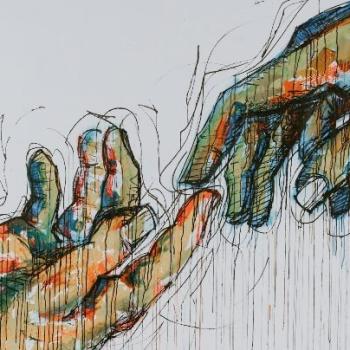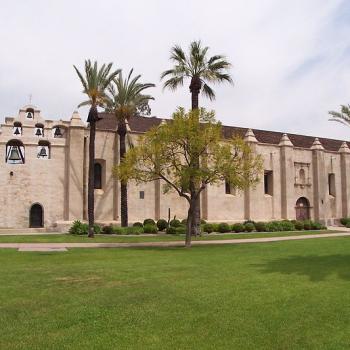Ricoeur's points tell us what things are available for canonization, but not necessarily what has, in fact, been canonized nor why. This list might describe some texts that lie outside of the canon, such as Dante's Divine Comedy.
The process of canonization, Ricouer argues, includes four things ("The Canon Between the Text and the Community," in Philosophical Hermeneutics and Biblical Exegesis 7-26, cf. 14-15):
- An informed, thoughtful collecting of texts that meet the previous five criteria.
- The establishment of reading traditions (e.g., the schools of the rabbis and medieval cathedral schools).
- The assertion of the superiority of the collected texts for instruction and education (a crucial element).
- That an historical community has taken charge of the process of interpretation and the resolution of conflicts in interpretation.
Ricouer's thinking about what constitutes scriptural texts and how they come to be canonized describes not only how the Bible came to be in its present form, but also how the LDS standard works came to be canon.
As the on-going publication of Joseph Smith's papers makes clear, Ricoeur's four points describe well how the Doctrine and Covenants came about (though perhaps the second point wasn't an obvious part of the process). His points also help explain how additions to the LDS canon occur, as has happened to two official declarations by the LDS Church's First Presidency. It is a combination of communal wisdom and ecclesiastical authority.
Though Mormon belief about what is scripture differs from that of traditional Christians, the process by which scripture comes to be scripture is similar in both cases.
Spinoza argued that the Bible should be treated like any other book, but Ricoeur's thought shows us why that isn't so: some texts, including but not limited to religious texts, have an authority over those who take them up that other texts do not; they are not read and should not be read like other books, at least not by their adherents.
Philosophers don't read Plato the same way that non-philosophers do, for example, and they ought not to. And philosophers don't read cookbooks in the same way that they read Plato—and they ought not to. It is a mistake to think that all books should be read in the same way, according to the same criteria.
But the canonized books of a religion are yet different from the "scriptures" of philosophy or other fields. For in the canon of a religion, that religion's identity is at stake: Jews are those who take the Torah as the word of God. Christians are the people who read the Hebrew Bible and the New Testament as that word. Muslims are the people who read the Quran as the word of God. Mormons are those who accept as the divine word not only the Christian Bible, but also the Book of Mormon (and the Doctrine and Covenants and Pearl of Great Price).
Religious people find their identity in their books of scripture, and in some way or another, their scripture is given by God. As Ricoeur says, to read a text religiously is to hold "to a word reputed to have come from farther away from and higher than myself" (La Critique et la conviction 219, my translation).
Mormons believe that God has spoken to us through prophets and continues to do so. Scripture isn't the only place where he does that, but it is a place where we warrant that his voice can be heard, which is why LDS prophets continue to exhort us to study the scriptures regularly.
Whatever we accept as scripture, however we describe its provenance, whether we believe in scriptural inerrancy or not, this is the most important thing we can say about scripture: it comes from God. That's the Mormon claim about the Book of Mormon and other LDS scripture: like the Bible, they come from God.





